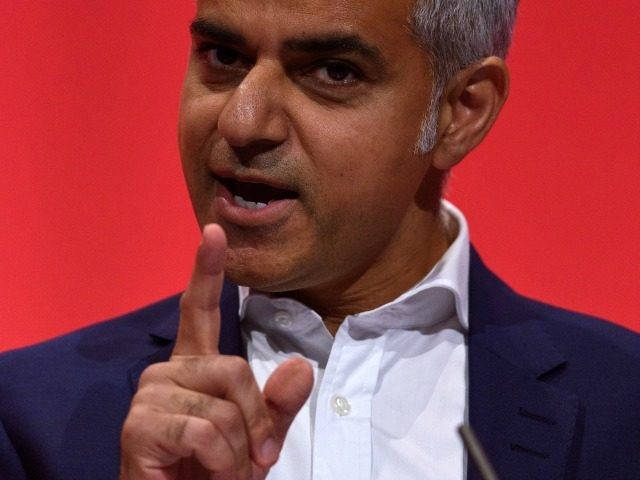The office of London’s first Muslim mayor has secured millions of pounds to fund a police “online hate crime hub” to work in “partnership with social media providers” to criminalise “trolls” who “target… individuals and communities.”
The London mayor’s office for policing and crime (Mopac) will spend £1,730,726 of taxpayer’s money policing speech online after applying for a huge grant from the Home Office Police Innovation Fund (PIF), it was announced in a statement.
“The purpose of this programme is to strengthen the police and community response to this growing crime type” is was announced, and will “involv[e] a dedicated police team” backed by “volunteers”.
Mopac, to whom the Met answers to, has advertised a vacancy for a civilian programme manager, with a salary of £52,455, to support the five other police employees.
The measures will be “delivered in partnership with social media providers” who along with “specialist officers” will be “filtering and identification of online hate crimes” and “identifying the location of the crime and allocating to the appropriate force…”
In May this year, the EU announced that Facebook, Twitter, YouTube and Microsoft had “committed” to working more closely with them and national governments and “their law enforcement agencies” to help “criminalise” perceived “illegal hate speech” online.
London’s Metropolitan police force said they welcomed the extra workload and wished to encourage offended people to report perceived hate crimes in ever increasing numbers.
“The Metropolitan police service is committed to working with our partners, including the mayor, to tackle all types of hate crime including offences committed online,” a spokesman for the Met said.
“By establishing this unit, we are sending a strong message to those who use online forums to spread hate that their actions will not be tolerated. The Metropolitan police service continues to have a zero-tolerance approach to all forms of hate crime.
“The Met encourages all victims of hate crime to report any incident to the police and will make every effort to hold offenders to account and bring them to justice.”
Sadiq Khan launches crackdown on Brexit vote hate crime https://t.co/adhAsfLjuV < probably the only politician taking this seriously
— Aisha S Gani (@aishagani) July 8, 2016
Convictions for crimes under Section 127 of the Communications Act of 2003, a law increasingly used to prosecute “internet trolls”, have increased ten-fold in a decade, official figures revealed in May last year. They showed 1,209 people were found guilty of offences under the law, compared with 143 in 2004, according to the Ministry of Justice.
The law criminalises “using [a] public electronic communications network in order to cause annoyance, inconvenience or needless anxiety,” and can result in a six-month prison term or fine of up to £5,000.
“Pure rants, very childish [people online] are increasingly criminalised, and as a result of that the police is becoming more and more involved in controlling our morality”, explained Frank Furedi, emeritus professor of sociology at the University of Kent, on BBC Radio 4 this morning.
“[The police are] almost playing the role of a moral police. And instead of dealing with real crime in the offline world, [the police] find its very convenient to ‘send the message’ in the online world because it’s a relatively easy thing to do”, he said.
Adding: “And what I’m really worried about, is that the whole freedom of speech becomes compromised whenever people have to think twice about what they say”.
Section 127 was the law used to prosecute James McConnell, the Northern Irish Pastor charged with making “grossly offensive” remarks about Islam during a sermon broadcast online in 2014.
He was subjected to an 18-month police investigation and criminal prosecution, eventually being found not guilty at the beginning of this year.
In 2011, a Scottish football fan was sentenced to eight months in prison for insulting Celtic fans, Catholics and the Pope on a Facebook page under section 127.
During sentencing, the sheriff told the defendant that “the right-thinking people of Glasgow and Scotland” would not tolerate his views being expressed online.

COMMENTS
Please let us know if you're having issues with commenting.